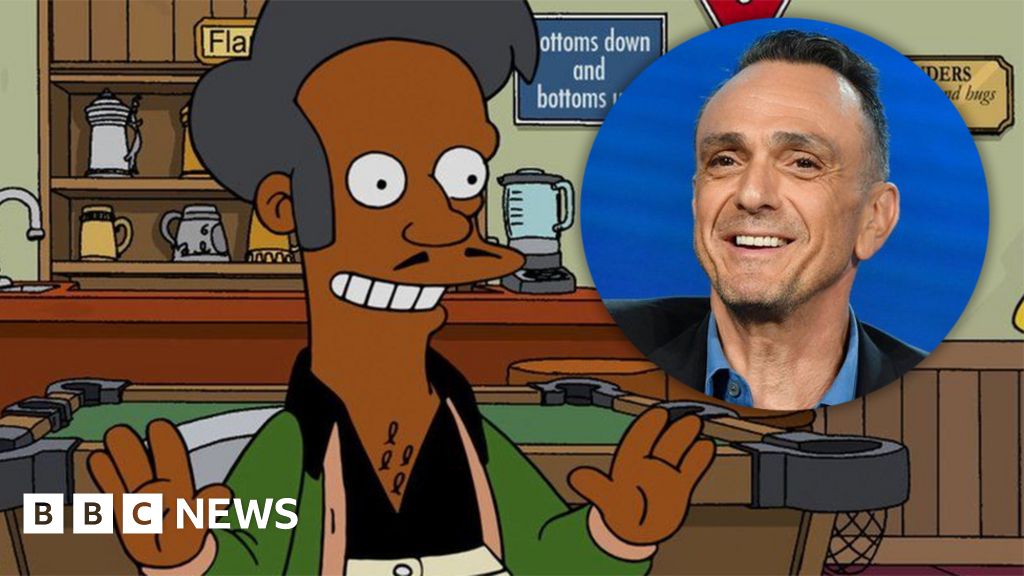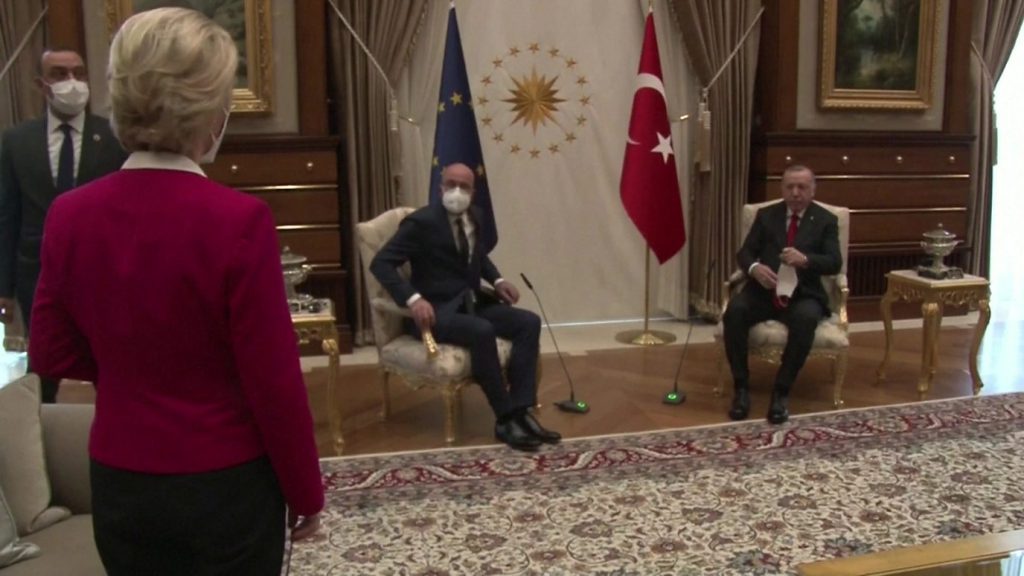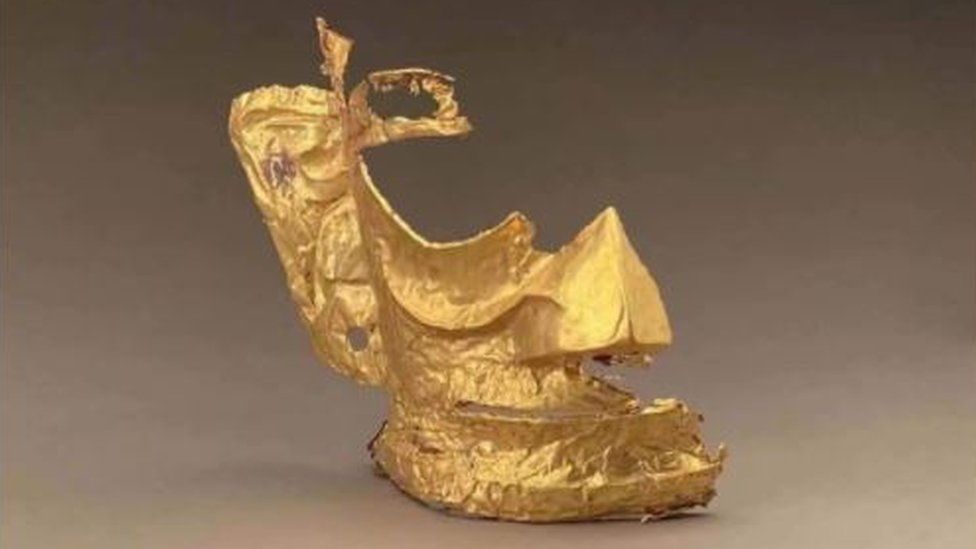When steel matters
The events that are shortly to be related took place in a different age and a different culture, in an altogether foreign location in the broadest sense which was unknown to the people of that time, but is now known to us as a consequence of the work of Einstein in the early part of the twentieth century. It was the time of railroads, steam trains, iron mills, steelworks, coal-mines and dirty work, when undertaker meant more than the entrepreneur and entrepreneur was an unknown word. The prosperity of a municipality could be measured, at least in part by the number of railway stations that it boasted, but better by the quality of the steel produced there and it was from one of these small towns towards the upper end of one of the rolling Welsh valleys that a principle undertaker in the steel industry received a telegram from a bridge and engineering fabricator in North Africa who wished to discuss the procurement of a quantity of steel for the provision of the building of a new bridge across the Niger.
Enys Jones was an atypical undertaker, who upon receipt of the telegram passed it to her chief supply officer Emyr Carwyn Lloyd for his examination. Following certain enquiries he reported back to his superior, who authorised him to visit the prospective customer to ascertain the needs of the project, the suitability of an agreement to supply and the terms of any such agreement. A telegram was returned to the enquirer, who responded with an offer to meet the costs of the journey subject to an upper limit, which was found to be most agreeable to Emyr Lloyd. It was never openly said, but both thought that Emyr was not an inappropriate name for the visitor and may well lend a certain status to the supply officer which he would otherwise not have had.
Emyr Carwen Lloyd set about his travel plans with the meticulous precision that he afforded to his daily work and which, he had no doubt, had earned the company for which he worked its enviable reputation, prompting the enquiry which he was then about to pursue. He would travel by train and sail for which he believed a combined first class return ticket would be available.
Sadly, his carefully crafted plans began to fall apart as he arrived at Dowlais Central to buy the ticket for his journey.
‘Timbuctoo, sir, where, if I may enquire, is that? It’s not on my list. I can offer you Cardiff, but that’s as far as we go.’ He bought a ticket to Cardiff.
Cardiff Central is a few minutes’ walk from his first destination. As he walked, he mused on the way that at least here it would be possible to buy his ticket, but the response was not dissimilar:
‘Timbuctoo, sir, where is that? It’s not on my list. I can give you Timahoe, Timoleague, Touraneena, Tuar Mhic Éadaigh,.. ‘ He would have gone on, but Emyr interrupted him: ‘Timbuctoo is not in Ireland, it is in North Africa’. He bought a ticket for London. The ticket officer advised him that he had a ticket to the Victoria station. As his train would be going into the Waterloo, it would be to his advantage if he alighted at the Vauxhall station to change to a local train into the Victoria, otherwise he would require a hansome cab to take him from the Waterloo to the Victoria. If he alerted the guard on the train he would be given whatever assistance may be required to make the transfer. On the journey he learned from a fellow passenger that although the train managers preferred the transfers to take place at Vauxhall, most passengers found it more convenient, though slightly longer to alight at the Clapham junction station and continue the journey into the Victoria station from there.
Upon his arrival in Victoria he decided to wait until the morning to continue the journey and found lodgings in a hotel nearby to the station.
In the morning his hopes were high; here he was in the middle of the capital city of the Empire, surely here it would be possible to buy a ticket for the remainder of his journey. His hopes were dashed as he asked for his ticket.
‘Timbuctoo, sir? Do you mean Timbuctoo in French North Africa?’
‘Yes, is there another?’ he replied rather glad that the ticket officer at the least knew of Timbuctoo
‘I only wanted to be sure, sir, that that was your intended destination. I would not want to sell you an invalid ticket for your journey. Some people do ask for the strangest of tickets. Only last week someone wanted a ticket to Riyadh. It turned out in the end he wanted to go to Rhaeadr, but couldn’t get his tongue round it. All seemed to be going well, until he was presented with his ticket.’
‘Is that all?’ he enquired.
‘Yes, sir. We have a train leaving for Paris in three hours. It will arrive tomorrow afternoon. You must continue your journey from there. ‘
There was nothing for it. He took the train to Paris, where he thought it would become possible to obtain a pass for the rest of his journey, after all Timbuctoo was in French North Africa.
The station at Paris Nord was a cacophony of the most unpleasant sounds, and aromas. His French was poor, but he understood enough to receive the message: ‘A ticket to where? It is possible that we sell you tickets to Dunquerque, Calais, Aix-la-Chappelle, Essen, Hamburg, Copenhagan, Stockholm, Oslo, Berlin, Prague even Moscow, but Timbuctoo, it is impossible. You must go to the correct ticket office to buy such a ticket. ‘
‘And where is the correct ticket office?’, he asked, but no one was able to tell him. They neither knew nor did they care. It was not their business.
He retired to a rather shabby, though for Paris Nord it was probably considered to be rather smart, hotel, to consider his next move. Whilst speaking with one of the other guests he learned that he would never be able to buy a ticket to Timbuctoo in Paris, the primary reason being that whilst he was not English, he would still be treated as if he were Rosbif. The guest however also happened to know that the train for Rome would leave at noon the following day. From Rome he would be able to travel to Naples and Palermo, and sail to Tunis, thereafter travel to Timbuctoo would be quite straightforward though not as comfortable as he would find the journey to and through Italy. Emyr was greatly encouraged, and even more so when he learned that the hotel had a railway ticket office which specialised in tickets to Italy where he was able to buy the three tickets he required to travel to Palermo there and then.
The journey through Italy, though it took five days, was as comfortable and pleasant as he had been led to understand, if not more so. It also considerably lightened his luggage as he was able to return several books by post as he passed through Naples. On his arrival in Palermo he met again the guest from the hotel in Paris, whom he chided for not telling that they would be on the same train. The gentleman excused himself that as he could not afford the first class travel they would not have been permitted to associate with each other on the journey. It was better for Emyr to travel alone than to suffer the rigours of the third class, they could however share in the journey to Tunis as the sailing vessel made no such class distinction. They travelled together to the port and embarked later that day across the Tyrrhenian Sea.
Herr Professor Doktor Ärhard Feinbaum proved to be the excellent company on the crossing. He was an archaeologist who was working in Carthage. He was also knowledgeable of Timbuctoo and provided Emyr with much insight and understanding of what to expect when he arrived, and also how to show interest in the exotic features of the locality.
Ärhard assisted Emyr in the acquisition of transport to Timbuctoo. It would be an arduous journey of three months. Emyr regretted posting some books back from Naples. He could have read them again. Ärhard however knew the drivers well, and persuaded them, by only referring to his guest as Emyr, that he should be well cared for and provided with his own private apartment on the journey. Ärhard would also ensure that a telegram was sent back to Wales to advise on Emyr’s progress as soon as it became possible to make a visit to the French government offices of the city.
Emyr acquired a journal before they left Tunis. If he could not read he would write he thought to himself. The heat, the sand and winds of the desert seemed to be perpetual. They would leave at dawn, travel for four or five hours then rest until late afternoon, when they travelled again until it was no longer possible to see. Emyr never saw any tents being dismantled or restored, but whenever they arrived at camp the tents were there ready for them, and his writing desk carefully set out. On a few days no travel was possible consequent upon the desert storms which afflicted the region from time to time. At length the caravan arrived at the outskirts of Timbuctoo, where the Berber who had led the train arranged accommodation for the now highly honoured Emyr. His writing had been worthwhile.
It was from this accommodation that Emyr sent a telegram back to his office and arranged his first visit to the enquirer.
Upon his arrival at the offices of the bridge and steel fabricant Emyr was quite taken aback to be greeted in Welsh, albeit it was Welsh with a strong Italian accent:
‚Diwrnod da, Emyr Carwen. Sut mae’n mynd gyda chi? Sut mae’ch taith wedi mynd â chi?’
‘Good day, Emyr Carwen. How goes it with you? How has your journey taken you?’ The translation from Banbara to Welsh was quite literal but Emyr understood them to ask: How are you? How was your journey?
At first he thought that they had simply learned these questions by rote to be polite, but when he proceeded to be polite himself and answered in Welsh his astonishment increased greatly in magnitude. Not only did they fully comprehend his reply, they asked for clarification in his use of hiraeth and whether it would be appropriate to use it in the context of sailor on the high seas who would in due course return home. They explained that, having no fleet themselves, they had no experience nor had any of their people of such things and so had difficulty understanding the use of the concept, as their mother tongue lacked the vocabulary for such ventures. They also asked for his assistance in enhancing their enunciation of his family name Lloyd, as, although other local languages had similar voiceless alveolar lateral fricative sounds they had not quite been able to master the Welsh sound. It was at this part of the discussion that Emyr Carwen Lloyd started to hear words that he did not even know existed in the Welsh language.
His relief was palpable when he discovered that the commercial discussions would be held in English, but the contract would be drawn up in Welsh. It appeared to him that they had already decided they would buy the steel from him, and that it was really only the quantity and quality, which would be determined by the purpose to which it was to be put, that remained to be determined. The price it appeared was not open for negotiation. The engineers had already done their work, and knew what they would be expected to pay for the various qualities that would be required. The only concern appeared to be the shipping costs, insurance of the cargo and timing. The steel, they thought, could be sent by boat from Cardiff down the west coast of Africa and then up the Niger. At some point it would have to be offloaded onto barges for the final stages of the journey, but it would eventually arrive at the port some six miles south of the city, close to the final destination where it was to be used. Timing was important as the Niger was only navigable in the vicinity of Timbuctoo for two months of the year. It would not be possible to move the eight to ten thousand tonnes of steel and iron required in the dry season, though it would be in the dry season that construction work would be undertaken.
Emyr and the engineers poured over the designs and calculations for several days, each checking the other’s figures and calculations in meticulous details. Emyr was not simply interested in the sale of the steel, but that the project itself would work. He would not sell steel for a project that would fail for other reasons, as the failure itself may be used to impugn the quality of the steel provided and reflect badly upon the Enys Jones Steel Works (Dowlais). So every detail was assessed and eventually the calculations and quantities agreed down to the number of nuts and bolts that would be provided. It was also agreed that no part of the project would be provisioned by steel from any other supplier upon pain of forfeiture of a bond that would be held by the German consulate in Tunis, there being no British presence and the French could not be trusted by either party.
The contract being concluded, it was time for Emyr to depart. Ärhard not being present he would have to arrange the journey back himself. So he went to the local travel office as suggested by his host. Anticipating that he would have to travel in stages he asked about travel back to Tunis. That would not be a problem he was told, there was a train leaving in a few days. Accommodation in it could be arranged, in the meantime arrangements could be made for him to spend time to view the city. The presence of ‘the Welsh Emyr’ had become well-known in the city and he was by then something of a celebrity. Then there was a question:
‘What is the end of your journey?’
They were not unfamiliar words to Emyr who had often sung them in the chapel at home.
‘Why I am going back home to Dowlais’ he said with a note of surprise in his voice.
‘So you would require a ticket to Dowlais then, sir.’ came the reply, ‘Would that be Dowlais Central, Dowlais Top or Dowlais Caeharris?’
Courtesy of PLC, this version PC 2021

 The Book Burning Pit
The Book Burning Pit



